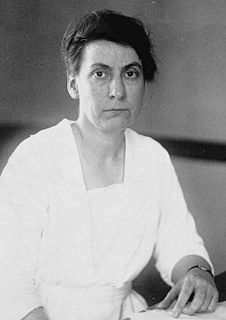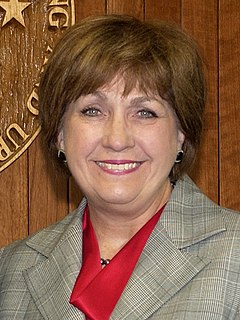A Quote by Pope Francis
Poverty calls us to sow hope.... Poverty is the flesh of the poor Jesus, in that child who is hungry, in the one who is sick, in those unjust social structures.
Related Quotes
I was born in a very poor family. I used to sell tea in a railway coach as a child. My mother used to wash utensils and do lowly household work in the houses of others to earn a livelihood. I have seen poverty very closely. I have lived in poverty. As a child, my entire childhood was steeped in poverty.
Essential to the attainment of these national goals is the moral imperative of ensuring social justice and respect for human dignity. The great biblical tradition enjoins on all peoples the duty to hear the voice of the poor. It bids us to break the bonds of injustice and oppression which give rise to glaring, and indeed, scandalous social inequalities. Reforming the social structures which perpetuate poverty and the exclusion of the poor first requires a conversion of mind and heart.
When we give help to the poor, we are not doing the work of aid agencies 'in a Christian way'. Those are good, it is a decent thing to do - aid work is good and quite human - but it is not Christian poverty, which St. Paul desires of us and preaches to us. Christian poverty is that I give of my own, and not of that which is left over - I give even that, which I need for myself, to the poor person, because I know that he enriches me. Why does the poor person enrich me? Because Jesus Himself told us that He is in the poor person.
Poverty is a strange and elusive thing. ... I condemn poverty and I advocate it; poverty is simple and complex at once; it is a social phenomenon and a personal matter. Poverty is an elusive thing, and a paradoxical one. We need always to be thinking and writing about it, for if we are not among its victims its reality fades from us. We must talk about poverty because people insulated by their own comfort lose sight of it.
The times talk to us of so much poverty in the world and this is a scandal. Poverty in the world is a scandal. In a world where there is so much wealth, so many resources to feed everyone, it is unfathomable that there are so many hungry children, that there are so many children without an education, so many poor persons. Poverty today is a cry.
Political systems must love poverty-they produce so much of it. Poor people make easier targets for a demagogue. No Mao or even Jiang Zemin is likely to arise on the New York Stock Exchange floor. And politicians in democracies benefit from destitution, too. The US has had a broad range of poverty programs for 30 years. Those programs have failed. Millions of people are still poor. And those people vote for politicians who favor keeping the poverty programs in place. There's a conspiracy theory in there somewhere.
One of the most durable successes of the war on poverty was to dramatically reduce the number of elderly poor in America. That's still true today. But, by contrast, child poverty has shot up over the last few years: A decade ago, about 16 percent of children in America were poor - which is a shockingly high percentage. But it's not as shocking as today, when we see that 22 percent of kids live in poverty.
Government programs aim at getting money for poor people. Our hope was that knowledge would in the long run be more useful, provide more money, and eventually strike at the system-causes of poverty. Government believes that poverty is just a lack of money. We felt, and continue to feel, that poverty is actually a lack of skill, and a lack of the self-esteem that comes with being able to take some part of one's life into one's own hands and work with others towards shared-call them social-goals.
By repealing the Child Poverty Act, which forced governments to take real action to tackle child poverty, this government brings a proud chapter of British history to an undignified end. In future the government will measure child poverty not by looking at whether they have any money, but by looking at their so-called 'life chances.'































